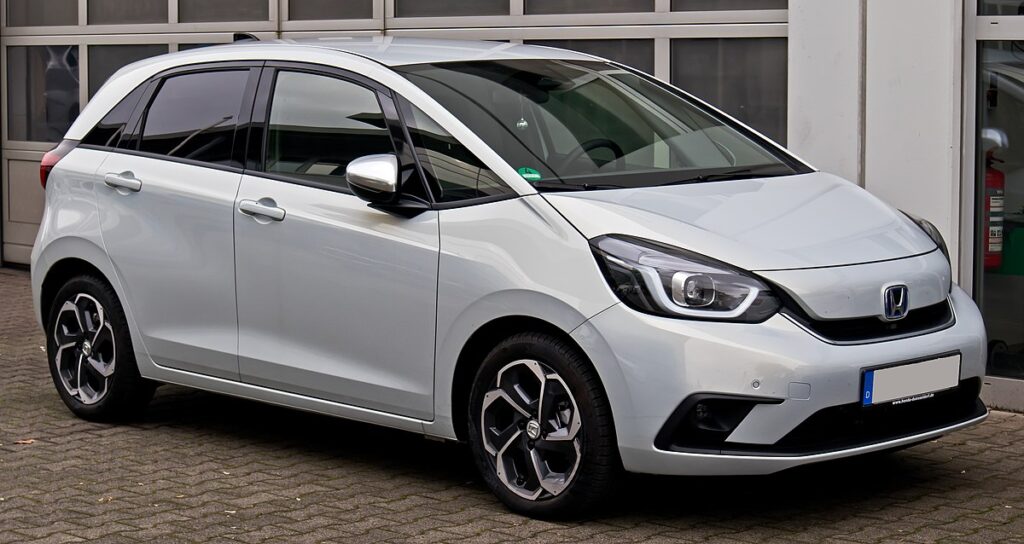
Honda Jazz Jerking When Accelerating: Causes, Fixes, and Prevention

When your Honda Jazz jerks while accelerating, it can feel unsettling—especially if it’s usually the smooth, reliable hatchback we all know and love. That slight hesitation or sudden jolt under acceleration often hints at something deeper going on within the car’s mechanical or electronic systems. In this guide, we’ll explore every angle of the issue — from simple DIY checks to more advanced mechanical fixes — and help you regain that buttery-smooth drive your Jazz was built for.
- Understanding the Jerking Problem
- Common Symptoms Before a Full Jerk Happens
- Top Causes of Honda Jazz Jerking When Accelerating
- Fuel System Problems
- Ignition System Failures
- Transmission and CVT Issues
- Dirty or Failing Sensors
- Air Intake and Throttle Body Problems
- Exhaust Restrictions and Catalytic Converter Issues
- Bad Engine Mounts and Vibrations
- Software or ECU-Related Glitches
- DIY Inspection Checklist
- When to Visit a Mechanic
- Preventive Maintenance Tips
- Honda Jazz CVT-Specific Jerking Explained
- Final Thoughts
- FAQs
Understanding the Jerking Problem
Jerking during acceleration feels like your Honda Jazz is hesitating, bucking, or lunging forward unexpectedly. It usually happens when you press the accelerator and expect a smooth rise in speed—but instead, the car stutters as if it’s confused about what to do next.
This can occur whether you’re driving a petrol or hybrid Jazz, and while it’s often linked to fuel or air delivery, it can also stem from electrical or transmission-related issues.
Common Symptoms Before a Full Jerk Happens
You can often spot early warning signs before the jerking gets serious. Here’s what to look for:
- Slight hesitation or shudder under light acceleration
- Reduced throttle response
- Check engine light flickering on intermittently
- Drop in fuel efficiency
- Rough idling or shaking at stoplights
- Difficulty maintaining speed on inclines
If you’re noticing any of these, it’s time to investigate — before it evolves into full-blown jerking.
Top Causes of Honda Jazz Jerking When Accelerating
There isn’t one universal cause, but rather a mix of possibilities that depend on your car’s age, mileage, and maintenance history. The major categories include:
- Fuel delivery issues
- Ignition or spark faults
- Transmission (especially CVT) malfunctions
- Air or sensor problems
- Software or ECU irregularities
Let’s unpack each of these in depth.
Fuel System Problems
The fuel system ensures your Jazz engine gets the right amount of petrol at the right time. If there’s an interruption, your car may misfire or jerk.
- Dirty fuel injectors – Blocked injectors prevent proper atomization of fuel.
- Failing fuel pump – Low pressure starves the engine.
- Clogged fuel filter – Restricts flow, especially noticeable at higher speeds.
- Bad fuel quality – Contaminated fuel can cause misfires or rough running.
Quick Fixes
- Add a fuel system cleaner to your next tank.
- Replace your fuel filter if it hasn’t been changed recently.
- Test the fuel pressure to ensure the pump’s delivering properly.
Ignition System Failures
A healthy spark is essential for smooth acceleration. When spark plugs or ignition coils start to fail, you’ll experience intermittent jerks, misfires, or backfires.
Common Ignition Issues
- Worn spark plugs
- Cracked ignition coils
- Moisture or oil in spark plug wells
- Faulty wiring or corroded connectors
Signs of Ignition Problems
- Jerking or shuddering when accelerating
- Rough idling
- Check engine light with codes like P0300–P0304 (misfire codes)
Fix
- Replace spark plugs every 30,000–60,000 miles.
- Inspect coils and wires for cracks or corrosion.
- Use OEM parts for reliability — Honda coils are sensitive to aftermarket substitutes.
Transmission and CVT Issues
Many Honda Jazz models use a CVT (Continuously Variable Transmission). When working well, it provides seamless power. But when it fails, you might feel surging, slipping, or jerking under load.
CVT-Specific Problems
- Worn belt or pulleys
- Old CVT fluid causing hydraulic hesitation
- Software calibration faults
- Torque converter slipping
Maintenance Tip
Honda recommends CVT fluid changes every 25,000–40,000 miles. Using the wrong fluid (non-HCF-2) can damage the transmission and cause jerking.
You may be interested in reading Hyundai i10 Problems: Common Issues, Symptoms, and Reliable Fixes
Hyundai i10 Problems: Common Issues, Symptoms, and Reliable FixesDirty or Failing Sensors
Modern Jazz models rely on sensors to manage air-fuel ratios, timing, and throttle response. A dirty or malfunctioning sensor can confuse the ECU and cause jerking.
Key Sensors to Check
- MAF (Mass Air Flow) sensor
- O2 (Oxygen) sensor
- TPS (Throttle Position) sensor
- MAP (Manifold Absolute Pressure) sensor
Fix
- Clean the MAF sensor with MAF cleaner spray (never touch the wire directly).
- Replace faulty sensors if cleaning doesn’t restore performance.
Air Intake and Throttle Body Problems
The throttle body controls how much air enters the engine. Over time, carbon buildup restricts airflow, making your Jazz hesitate during acceleration.
Symptoms
- Jerky acceleration
- Idle fluctuation
- Throttle lag
Solution
Remove the intake hose and clean the throttle body using throttle cleaner. Reset the ECU afterward to allow it to relearn the idle parameters.
Exhaust Restrictions and Catalytic Converter Issues
If your catalytic converter is clogged, it can restrict exhaust flow, leading to jerking or loss of power.
Tell-Tale Signs
- Rotten egg smell (sulphur odor)
- Poor acceleration
- High fuel consumption
Fix
Have a mechanic check exhaust back pressure or temperature difference across the converter. If blocked, replacement is often the only option.
Bad Engine Mounts and Vibrations
Sometimes the jerking isn’t from the engine or transmission at all—it’s from worn engine or transmission mounts that can’t absorb vibrations properly.
Symptoms
- Strong vibration under load
- Clunking when shifting gears
- Jerky feeling during take-off
Replacing damaged mounts restores smoothness instantly.
A rare but possible cause is ECU confusion—especially after modifications, jump-starts, or battery disconnections. The ECU may misread sensor data or apply incorrect fuel trims.
What to Do
- Reset the ECU by disconnecting the battery for 10 minutes.
- If problems persist, a Honda dealer ECU reflash may be necessary.
DIY Inspection Checklist
Here’s a quick checklist to troubleshoot Honda Jazz jerking at home:
| Checkpoint | What to Inspect | Tool Needed | Fix Type |
|---|---|---|---|
| Fuel Filter | For blockage or contamination | Wrench set | Replace |
| Spark Plugs | Wear, oil, gap size | Spark plug wrench | Replace |
| Air Filter | Dirt or clog | Visual | Replace |
| MAF Sensor | Dust or oil film | MAF cleaner | Clean |
| Throttle Body | Carbon buildup | Throttle cleaner | Clean |
| CVT Fluid | Level and color | Dipstick | Replace |
| Engine Mounts | Visible cracks or sag | Pry bar test | Replace |
When to Visit a Mechanic
If you’ve checked the basics but your Jazz still jerks, it’s time for professional help. Visit a garage if:
- The Check Engine Light remains on
- You experience loss of power or stalling
- Jerking occurs at specific RPMs only
- CVT whining or slipping noises are heard
A diagnostic scan can pinpoint fault codes and save you from unnecessary part replacements.
You may be interested in reading Hyundai i10 Problems: Common Issues, Symptoms, and Reliable Fixes
Hyundai i10 Problems: Common Issues, Symptoms, and Reliable Fixes Why Your Hyundai i10 Won’t Start: Common Causes and Fixes
Why Your Hyundai i10 Won’t Start: Common Causes and FixesPreventive Maintenance Tips
To keep your Jazz running smoothly:
- Use only Honda Genuine CVT Fluid (HCF-2)
- Replace spark plugs on schedule
- Clean sensors annually
- Use high-quality fuel
- Perform regular oil and filter changes
- Avoid aggressive acceleration on a cold engine
Consistency is key — the smoother you treat your Jazz, the smoother it drives back.
Honda Jazz CVT-Specific Jerking Explained
The CVT transmission in the Jazz doesn’t have gears in the traditional sense. Instead, it uses pulleys and a steel belt to simulate variable ratios. When fluid deteriorates or sensors miscommunicate, that seamless transition breaks down, producing:
- A “rubber band” acceleration feel
- Jerky starts from idle
- Over-revving before shifting sensation
A CVT fluid replacement and software calibration often restore performance. In severe cases, internal wear might require a transmission rebuild — costly but sometimes unavoidable on higher-mileage cars.
Final Thoughts
A Honda Jazz jerking when accelerating can stem from something as simple as a dirty sensor or as complex as CVT degradation. The key is early detection and regular maintenance. Treat every slight hesitation as a whisper from your car—it’s telling you something’s not quite right. Listen early, act wisely, and your Jazz will thank you with years of smooth, efficient driving.
FAQs
1. Why does my Honda Jazz jerk at low speeds?
It’s often due to dirty fuel injectors, throttle body buildup, or CVT hesitation. Start by cleaning sensors and checking fluid quality.
2. Can bad spark plugs cause jerking during acceleration?
Yes. Worn plugs misfire under load, causing jerks or loss of power. Replace them every 30,000–60,000 miles.
3. Is jerking dangerous for the transmission?
Repeated jerking stresses transmission components, especially CVT belts. Address it promptly to prevent major damage.
4. How much does it cost to fix jerking on a Honda Jazz?
Depending on the cause:
- Spark plugs: £60–£120
- Fuel system cleaning: £100–£200
- CVT service: £180–£300
- ECU update: £100–£150
5. Does resetting the ECU fix jerking?
Sometimes. If it’s a software-related issue or adaptive miscalibration, an ECU reset can help temporarily. Persistent jerking needs mechanical inspection.
You may be interested in reading Hyundai i10 Problems: Common Issues, Symptoms, and Reliable Fixes
Hyundai i10 Problems: Common Issues, Symptoms, and Reliable Fixes Why Your Hyundai i10 Won’t Start: Common Causes and Fixes
Why Your Hyundai i10 Won’t Start: Common Causes and Fixes Hyundai i10 Screen Not Working — Complete Troubleshooting & Fix Guide
Hyundai i10 Screen Not Working — Complete Troubleshooting & Fix GuideIf you want to know other articles similar to Honda Jazz Jerking When Accelerating: Causes, Fixes, and Prevention you can visit the category Common Problems.
Leave a Reply






More content of your interest